Featured
 ‘The Americans Got Together and Decided to Drown You in the River.’ By Danny Cherry Jr. / Politico
‘The Americans Got Together and Decided to Drown You in the River.’ By Danny Cherry Jr. / Politico
A young Black engineer sought opportunity in the Soviet Union. He ended up at the center of an international incident.
Robert Robinson was walking home on the cobblestone sidewalks of Stalingrad one night when a Russian coworker approached with a warning: “Robinson, on the night you arrived … the Americans got together and decided to drown you in the river.” Robinson was stunned. The 24-year-old American hadn’t been working at the tractor factory for that long. He hardly knew anyone in the USSR, but in his capacity as a “foreign specialist” the Russians had treated him with respect so far. Plus, he kept to himself, which didn’t leave much time to make enemies.
Eventually, Robinson decided to return to the United States — but he found that a homecoming would be anything but easy. Eleven years after relinquishing his U.S. citizenship, in 1945, Robinson applied for a visa to visit his ailing mother back in America, but the Soviet regime denied his request, and he spent the period from roughly 1945 to 1973 trying to find a way out of the country. In 1974, he made his way to Uganda, and finally returned to the U.S. in 1980. In 1986, his citizenship was restored. Must Read
Political / Social
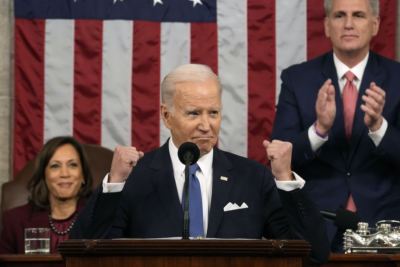 The Case Against a Biden Run Is Obvious—and Weak. By Jason Linkins / The New Republic
The Case Against a Biden Run Is Obvious—and Weak. By Jason Linkins / The New Republic
Democrats may fret over the president’s age, but they’re nowhere near ready to replace him.
Would-be Biden successors should take heed, because at the moment it’s Biden who sounds most like a bona fide party standard-bearer and a better tribune of the middle class than any of the GOP’s weird culture warriors, and more prepared to battle the larger universe of chiselers and cheats who have gotten away with nickel-and-diming ordinary Americans. Read more
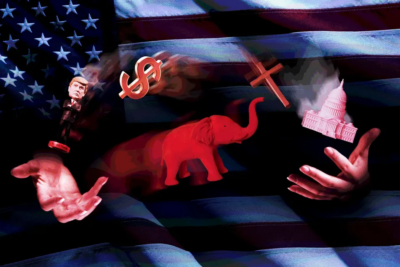 Republican identity politics: Authoritarianism — not individualism — is central to GOP. By Chauncey Devega / Salon
Republican identity politics: Authoritarianism — not individualism — is central to GOP. By Chauncey Devega / Salon
Their Orwellian newspeak version of “freedom, liberty and individual rights” belies a darker truth
Republicans have used their marketing machine to brand themselves as the party of “freedom”, “liberty” and “individual rights.” This is objectively not true. Today’s Republican Party and “conservative” movement are fascists and authoritarians who in total hate real democracy and freedom. Their ultimate goal is to take away the civil and human rights and freedoms of those people they deem to be the enemy and therefore not “real Americans.” Read more
 Florida Officials Had Repeated Contact With College Board Over African American Studies. Dana Goldstein, Stephanie Saul and
Florida Officials Had Repeated Contact With College Board Over African American Studies. Dana Goldstein, Stephanie Saul and
A letter from state officials is likely to fuel controversy over the College Board, which has been accused of stripping or minimizing concepts to please conservatives.
While the College Board was developing its first Advanced Placement course in African American studies, the group was in repeated contact with the administration of Gov. Ron DeSantis of Florida, often discussing course concepts that the state said it found objectionable, a newly released letter shows. When the final course guidelines were released last week, the College Board had removed or significantly reduced the presence of many of those concepts — like intersectionality, mass incarceration, reparations and the Black Lives Matter movement — though it said that political pressure played no role in the changes. Florida had announced in January that it would not approve the curriculum. Read more
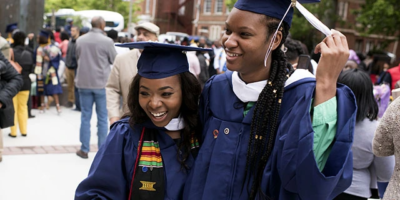 Key facts about the nation’s 47.2 million Black Americans. By Mark Hugo Lopez and Mohamad Moslimani / Pew Research Center
Key facts about the nation’s 47.2 million Black Americans. By Mark Hugo Lopez and Mohamad Moslimani / Pew Research Center
The number of Black people living in the United States reached a new high of 47.2 million in 2021, according to a Pew Research Center analysis of government data.
This group is diverse, with a growing number and share born outside the U.S. and an increasing number saying they are of two or more races. And while the South continues to see growth in its number of Black residents, the Black population is growing in other regions of the country, too. For Black History Month, here are key facts about the nation’s Black population. In this analysis, the Black population is made up of three main groups: single-race, non-Hispanic Black people; non-Hispanic, multiracial Black people; and Black Hispanics. Read more
 Childbirth Is Deadlier for Black Families Even When They’re Rich, Expansive Study Finds. By Claire Cain Miller, Sarah Kliff and Larry Buchanan / NYT
Childbirth Is Deadlier for Black Families Even When They’re Rich, Expansive Study Finds. By Claire Cain Miller, Sarah Kliff and Larry Buchanan / NYT
In the United States, the richest mothers and their newborns are the most likely to survive the year after childbirth — except when the family is Black, according to a groundbreaking new study of two million California births. The richest Black mothers and their babies are twice as likely to die as the richest white mothers and their babies. Research has repeatedly shown that Black mothers and babies have the worst childbirth outcomes in the United States. But this study is novel because it’s the first of its size to show how the risks of childbirth vary by both race and parental income, and how Black families, regardless of their socioeconomic status, are disproportionately affected. Read more
 The Right to Discriminate. By Jordon Smith / Intercept Podcast
The Right to Discriminate. By Jordon Smith / Intercept Podcast
Host Jordan Smith and law professor Hila Keren discuss a Colorado case that could expand the right to discriminate under the guise of free speech.
BACK IN 2017, the Supreme Court heard oral arguments in Masterpiece Cakeshop v. Colorado Civil Rights Commission, a case involving a cake shop owner who refused to create a wedding cake for a same-sex couple. In a 7-2 decision, the court found that the state had violated the cake maker’s religious objections. Now the court is considering another case out of Colorado that could expand the right to discriminate under the guise of free speech. In the fourth episode of Dissent, Jordan Smith and law professor Hila Keren discuss 303 Creative LLC v. Elenis, a challenge to the state’s Anti-Discrimination Act brought by Lorie Smith, a website designer seeking to refuse wedding design services to same-sex couples. Unlike Masterpiece Cakeshop, the 303 Creative case has no injured parties; it is a preemptive attempt to allow businesses to practice unfettered discrimination. Read more and listen here.
 White people have flocked back to city centers — and transformed them. By Tara Bahrampour Marissa J. Lang and Ted Mellnik / Wash Post
White people have flocked back to city centers — and transformed them. By Tara Bahrampour Marissa J. Lang and Ted Mellnik / Wash Post
In the past decade, the White population increased significantly in urban cores across the country, bringing changes both sweeping and intimate
In the 20th century, “White flight” transformed many American cities as White people moved in droves from urban centers to the suburbs. In the last decade, that exodus kicked into reverse. The White population increased between 2010 and 2020in hundreds of neighborhoods at the center of many large cities, even as it declined almost everywhere else in the ecountry. This influx, which in some cases began before 2010 but has accelerated and expanded, has brought about new upheavals, making some of the country’s biggest urban cores feel increasingly unrecognizable to longtime Black, Hispanic and Asian residents. Read more
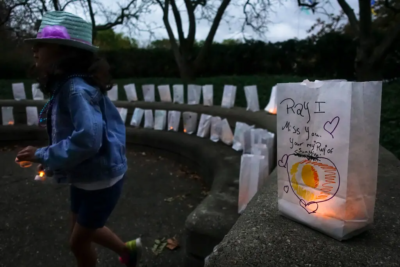 Following a Two-Year Decline, Suicide Rates Rose Again in 2021. By Ellen Barry / NYT
Following a Two-Year Decline, Suicide Rates Rose Again in 2021. By Ellen Barry / NYT
Suicide increased among younger Black, Hispanic and Native American people, and declined among whites and older people, the C.D.C. reported.
A two-year decline in yearly suicides ended in 2021, as suicide rates rose among younger Americans and people of color, according to a new report from the Centers for Disease Control and Prevention. For decades, suicide rates among Black and Hispanic Americans were comparatively low, around a third the rate recorded among white Americans. But a gradual shift is underway, as suicide rates rise in populations most affected by the pandemic. Read more
Ethics / Morality / Religion
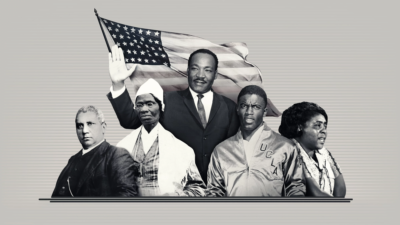 What is Black History Month in a white Christian nation? By Andrew Whitehead / RNS
What is Black History Month in a white Christian nation? By Andrew Whitehead / RNS
A new PRRI/Brookings survey demonstrates the historical repercussions of Christian nationalism.
Just in time for Black History Month, the Public Religion Research Institute and the Brookings Institution have released a fascinating new survey about Christian nationalism that points to the ways that stories about race in American history get told and why these stories matter. The PRRI/Brookings Christian nationalism survey adds to a host of research that demonstrates the historical repercussions of this powerful cultural framework. It shows that Christian nationalism can serve to rewrite history so that racial injustice and those responsible for it are rendered almost invisible. Read more
Related: A new poll gives us insight into a troubling anti-American movement. By Jennifer Rubin / Wash Post
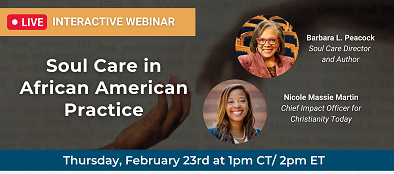 A History of Soul Care. By Barbara L. Peacock and Nicole Massie Martin / Christianity Today
A History of Soul Care. By Barbara L. Peacock and Nicole Massie Martin / Christianity Today
In her book “Soul Care in African American Practice,” Barbara Peacock spotlights inspiring examples of spiritual formation in Black history. Join CT and Seminary Now on February 23 for an online conversation with the author.
Black History Month celebrates the achievements made by Black Americans against a backdrop of oppression and struggle. But it’s also a good time to examine and learn from the resilient and deeply rooted faith of Black Christians. Many people are familiar with the exuberant worship and preaching of the Black church. Less discussed is the Black church’s unique embrace of the spiritual disciplines of contemplative prayer, spiritual direction, and soul care. Author and spiritual director Barbara L. Peacock’s 2020 book, Soul Care in African American Practice, shines a light on the holistic expression of these formational practices in the lives of Black Christians. Read more
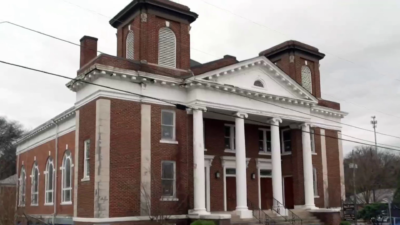 Restoring Faith: historic Black churches nationwide receive grants for restoration. By Lester Holt / NBC News
Restoring Faith: historic Black churches nationwide receive grants for restoration. By Lester Holt / NBC News
Black churches are among the oldest institutions in the United States. They’re also living monuments to American history. Now, $4 million from the African American Cultural Heritage Action Fund will be allocated to 35 Black churches across the country. NBC News’ Blayne Alexander visits Old Ship A.M.E. Zion Church to learn about its 171-year-long history and its hopeful future. Watch here
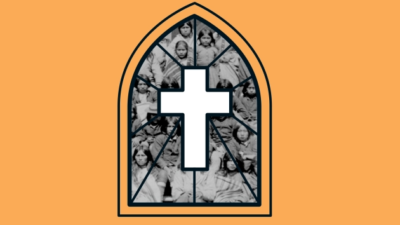 The Christian Groups Fighting Against the Indian Child Welfare Act. By Kiera Butler / Mother Jones
The Christian Groups Fighting Against the Indian Child Welfare Act. By Kiera Butler / Mother Jones
This spring, the US Supreme Court will hear a case that could decide the future of the Indian Child Welfare Act, the 1978 landmark law that strengthened tribes’ rights to keep Native children out of the foster care system. At the center of the current case are the Brackeens, a white Texas couple hoping to adopt a 4-year-old girl from a Navajo family. Devout Christians, the Brackeens have said that they felt called by God to adopt, telling the New York Times in 2019 that they considered adoption a way to “rectify our blessings.” Read more
Historical / Cultural
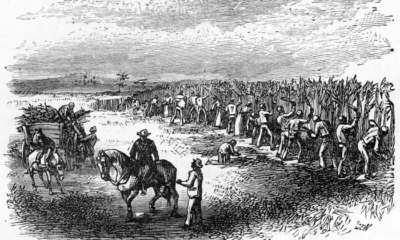 We whose ancestors owned slaves want to make amends – but nations must also pay their due. By Alex Renton / The Guardian
We whose ancestors owned slaves want to make amends – but nations must also pay their due. By Alex Renton / The Guardian
My family owned plantations, made profits and was compensated, but the personal atonement of my generation can only ever be a start
What do you do when you discover your family got rich through slavery? For Laura Trevelyan, the BBC correspondent whose ancestors owned more than 1,000 enslaved people in Grenada, the answer was simple. She and her family started discussions with people on the island, and now she has given £100,000 towards an economic development fund. The Trevelyans will apologise formally for the lives ruined and wasted by their ancestors’ greed. So why doesn’t everyone – and there are hundreds of thousands in Britain with the same history – do a little digging and say sorry? Read more
Related: Will They Finally Haul the Slaver Statues Out of the Capitol? By Pablo Manriquez / TNR
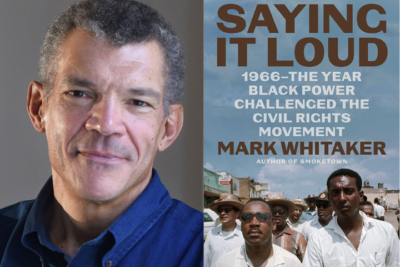 Mark Whitaker on 1966 – the year Black Power challenged the civil rights movement. By Jonathan Capehart / Wash Post Podcast
Mark Whitaker on 1966 – the year Black Power challenged the civil rights movement. By Jonathan Capehart / Wash Post Podcast
In this conversation recorded for Washington Post Live on Feb. 8, former Newsweek editor Mark Whitaker discusses his new book, “Saying It Loud: 1966 – The Year Black Power Challenged the Civil Rights Movement,” how the year transformed the way in which Black Americans viewed their lives and lessons for activists organizing today. Listen here
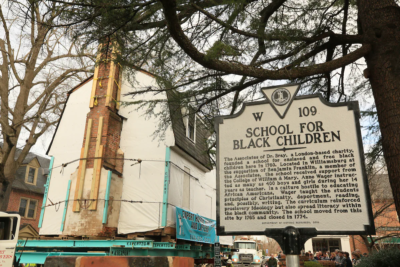 School building for Black children in 1700s moves to Colonial Williamsburg. By Susan Svrluga / Wash Post
School building for Black children in 1700s moves to Colonial Williamsburg. By Susan Svrluga / Wash Post
The Bray School building has served multiple purposes on the William & Mary campus
Over the years on the William & Mary campus, it had been overlooked, covered over, forgotten, moved out of the way. Finally a professor rediscovered, and other scholars later confirmed, the original Williamsburg Bray School. It could be the oldest extant building in the country where Black children were taught in the years before the American Revolution, an extraordinary site that historians hope will broaden and deepen our understanding of the nation’s formative years, and the experiences of those who lived through them. Read more
 Black Music (Super Bowl) Sunday: Prince was awesome in the rain, but don’t forget these Black bands. By Denise Oliver Velez / Daily Kos
Black Music (Super Bowl) Sunday: Prince was awesome in the rain, but don’t forget these Black bands. By Denise Oliver Velez / Daily Kos
As football fans across the nation prepare once again for the Super Bowl, other viewers tune in to critique the commercials, while still more are engaged in debates about the halftime show lineup. Members of all these groups are also likely have strong opinions about the greatest halftime show ever. I’ve browsed through lists and polls and heated debates about past halftime shows. Since this is Black Music Sunday, I went back with a focus on past Black halftime performances from multiple genres. I re-watched Latinos’ performances too, since much of the music performed was rooted in Afro-Latin culture. Read and listen here
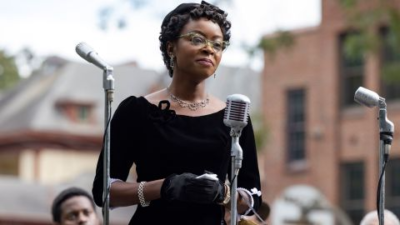 ‘Till’ actress Danielle Deadwyler attributes her Oscars snub to ‘misogynoir.’ By Harmeet Kaur / CNN
‘Till’ actress Danielle Deadwyler attributes her Oscars snub to ‘misogynoir.’ By Harmeet Kaur / CNN
For her powerful and moving performance as Mamie Till-Mobley in “Till,” Danielle Deadwyler was nominated for a BAFTA Award, a Critics’ Choice Movie Award, a Screen Actors Guild Award and several other industry prizes.
But despite garnering critical acclaim for her turn as Emmett Till’s grieving mother, there was one notable award for which she was overlooked: the Oscar. Deadwyler attributes the snub to systemic racism and “misogynoir,” a term coined by the Black feminist scholar Moya Bailey to refer to a distinct form of misogyny experienced by Black women as a result of how their race and gender intersect. Read more
 Sammy Davis Jr. Book ‘Dancing Down the Barricades’ Traces His Legacy. By Theodore Hamm / The Daily Beast
Sammy Davis Jr. Book ‘Dancing Down the Barricades’ Traces His Legacy. By Theodore Hamm / The Daily Beast
In his new book “Dancing Down the Barricades,” author Matthew Frye Jacobson traces the legendary entertainer and Rat Packer’s complicated legacy with Black politics.
In the mid-1960s, Sammy Davis Jr. ranked behind only Martin Luther King Jr. and Muhammad Ali as the most famous Black person in the world. Davis, however, was certainly the most welcome of the three in many white living rooms across the U.S.; a palatable, often upbeat presence for the white audiences whom he entertained for a living. But to remember him only for being the sole Black member of the Rat Pack, a pal of fellow crooners Frank Sinatra and Dean Martin, ignores the complex relationship between Davis and Black politics during the civil rights and Black Power eras. That’s the focus of the new book Dancing Down the Barricades from Matthew Frye Jacobson. Read more
Sports
 On Super Bowl weekend, can we see players as workers with dignity? By Mike Jordan Laskey / NCR
On Super Bowl weekend, can we see players as workers with dignity? By Mike Jordan Laskey / NCR
Buffalo Bills safety Damar Hamlin warms up before a game against the Detroit Lions at Ford Field Nov 24, 2022. Catholics are rejoicing in answered prayers after Hamlin made a dramatic recovery following cardiac arrest in a Jan. 2 NFL game. (OSV News photo/USA Today Sports via Reuters/Lon Horwedel)
The players we enjoy watching are real human beings, not faceless sources of our entertainment. American football so often obscures this truth, in large part through the very structure of the game. There are 22 players on the field at any given time, making individual performances outside of the quarterback and other skill position players difficult to follow; players’ helmets hide their faces from spectators; and the average NFL career length of three years means the majority of players come and go without much notice. Read more
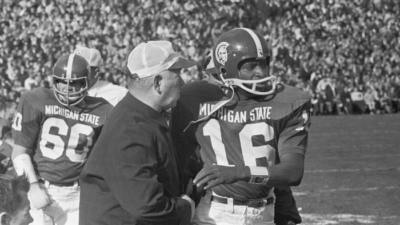 Pioneering quarterback Jimmy Raye sees Super Bowl as a culmination of a ‘life of denials.’ By William C. Rhoden / Andscape
Pioneering quarterback Jimmy Raye sees Super Bowl as a culmination of a ‘life of denials.’ By William C. Rhoden / Andscape
New documentary about Michigan State legend tells how he helped prepare the way for Patrick Mahomes and Jalen Hurts. Michigan State coach Duffy Daugherty (left) gives last-minute instructions to quarterback Jimmy Raye (right) in the second quarter of the game with Purdue in East Lansing, Michigan, on Oct. 22, 1966. AP Photo
The documentary, The Indelible Legacy of Jimmy Raye, tells the story of a talented young quarterback from Fayetteville, North Carolina, who hurdled segregated barriers, accepted a football scholarship to Michigan State and became part of one of the greatest teams in college football history. The film is eye-opening and, on this historic Super Bowl week, timely as the nation celebrates the first meeting of two African American quarterbacks, Patrick Mahomes and Jalen Hurts. Read more
Related: Jalen Hurts and Patrick Mahomes had to disprove a misconception. By Jemele Hill / The Atlantic
 CTE found in 92 percent of ex-NFL players analyzed in updated report. By Victoria Hernandez / USA Today.
CTE found in 92 percent of ex-NFL players analyzed in updated report. By Victoria Hernandez / USA Today.
Researchers at Boston University found CTE in 92 percent of former NFL players who were analyzed, the institution said in an update of its study.
The Boston University CTE Center studied the brains of 376 deceased former NFL players and diagnosed 345 of them with chronic traumatic encephalopathy. This is 91.7 percent of those studied.Ann McKee, director of the university’s CTE Center and chief of neuropathology at VA Boston Healthcare System, said the organization was intentional about providing an update of the study during the same week as Super Bowl 57. “It’s a reminder of how we’ve become complacent,” she said in an interview with The Brink. “The NFL hasn’t done anything substantial to prevent CTE or diagnose CTE, the risk is still there. The risk is high. That’s why we released it this week.” Read more
Related: The Forgotten History of Head Injuries in Sports. By Ingfei Chen / The New Yorker
Related: Former players sue NFL over how it handled disability benefits. By Ayana Archie / NPR
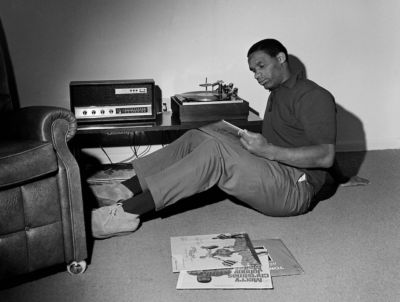 The Chiefs proudly broke racial barriers. Kansas City erected them. By Mark Dent / Wash Post
The Chiefs proudly broke racial barriers. Kansas City erected them. By Mark Dent / Wash Post
Chiefs running back Mike Garrett listening to records at his home in Kansas City, Mo., in November 1967. (William P. Straeter/AP). Mark Dent is the co-author of the forthcoming “Kingdom Quarterback: Patrick Mahomes, the Kansas City Chiefs, and How a Once-Swingin’ Cow Town Chased the Ultimate Comeback.”
The Chiefs, who play the Philadelphia Eagles on Sunday in a Super Bowl featuring two Black starting quarterbacks for the first time, have a proud legacy of elevating Black talent. The franchise’s early teams were stocked with overlooked stars from historically Black colleges and universities. Lamar Hunt, the team’s owner, saw the NFL’s racial biases as a market inefficiency to exploit. But the city wasn’t nearly as hospitable. Black players such as Garrett struggled to find housing in a metro area that was among the most redlined in the country. Read more
 How Sports Betting Upended the Economies of Native American Tribes. BDavid W. Chen, Mark Walker and
How Sports Betting Upended the Economies of Native American Tribes. BDavid W. Chen, Mark Walker and
Hard-fought deals for casinos gave many tribes a critical economic lifeline. When the doors opened to widespread sports betting, others wanted in on the gambling business.
For decades, gambling has been the most important source of income for hundreds of Native American tribes. Now, in many parts of the country, the rapid spread of sports betting and online wagering is threatening to crimp that economic lifeline. In Florida, the powerful Seminole tribe forged a lucrative deal to exclusively offer sports betting in the state, only to have the deal blocked by a lawsuit from casino companies. In the Upper Peninsula of Michigan, one tribe saw its gambling revenue decline sharply last year because of chaos in the online betting business. Read more
Site Information
Articles appearing in the Digest are archived on our home page. And at the top of this page register your email to receive notification of new editions of Race Inquiry Digest.
Click here for earlier Digests. The site is searchable by name or topic. See “search” at the top of this page.
About Race Inquiry and Race Inquiry Digest. The Digest is published on Mondays and Thursdays.
Use the customized buttons below to share the Digest in an email, or post to your Facebook, Linkedin or Twitter accounts.